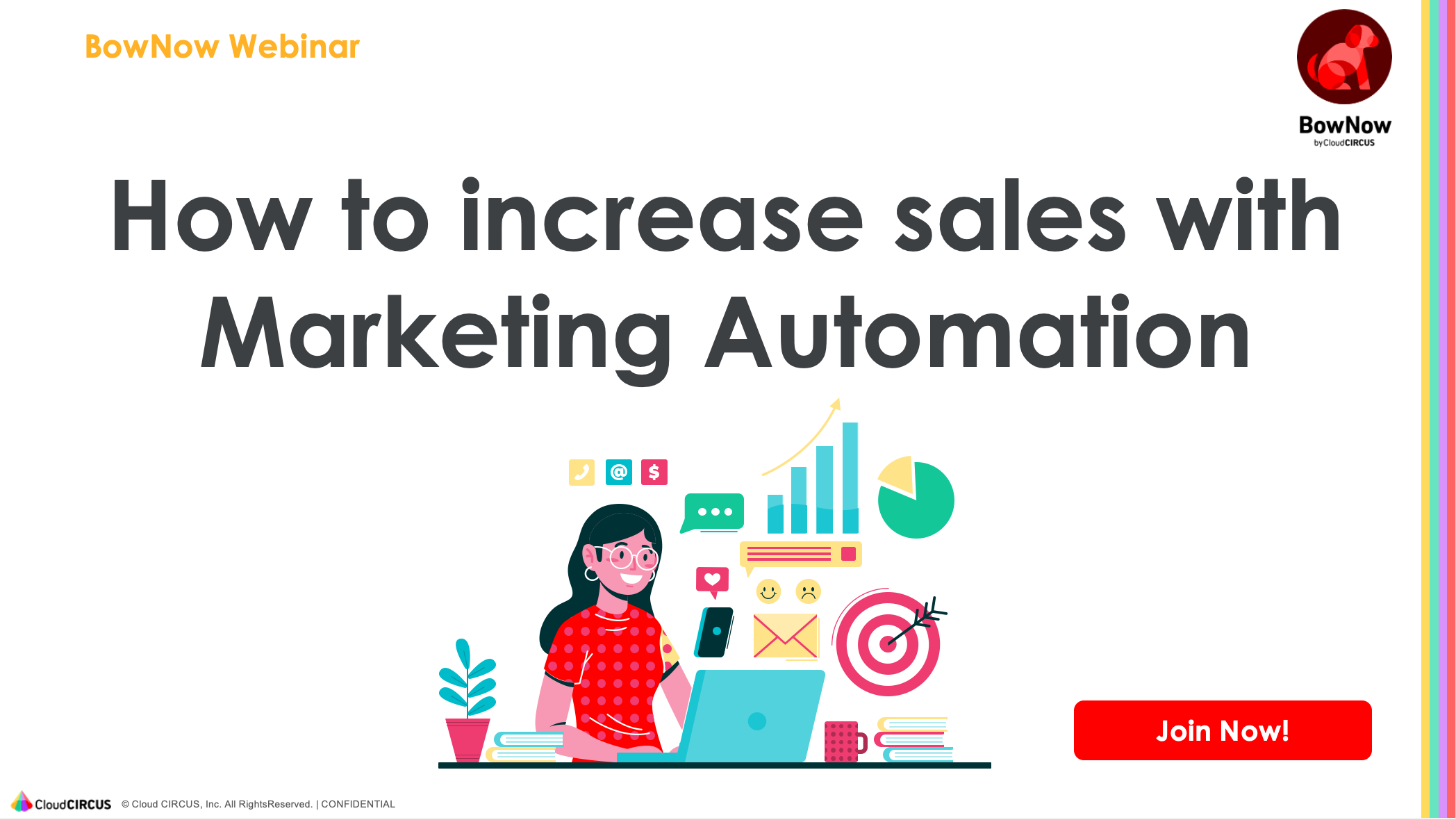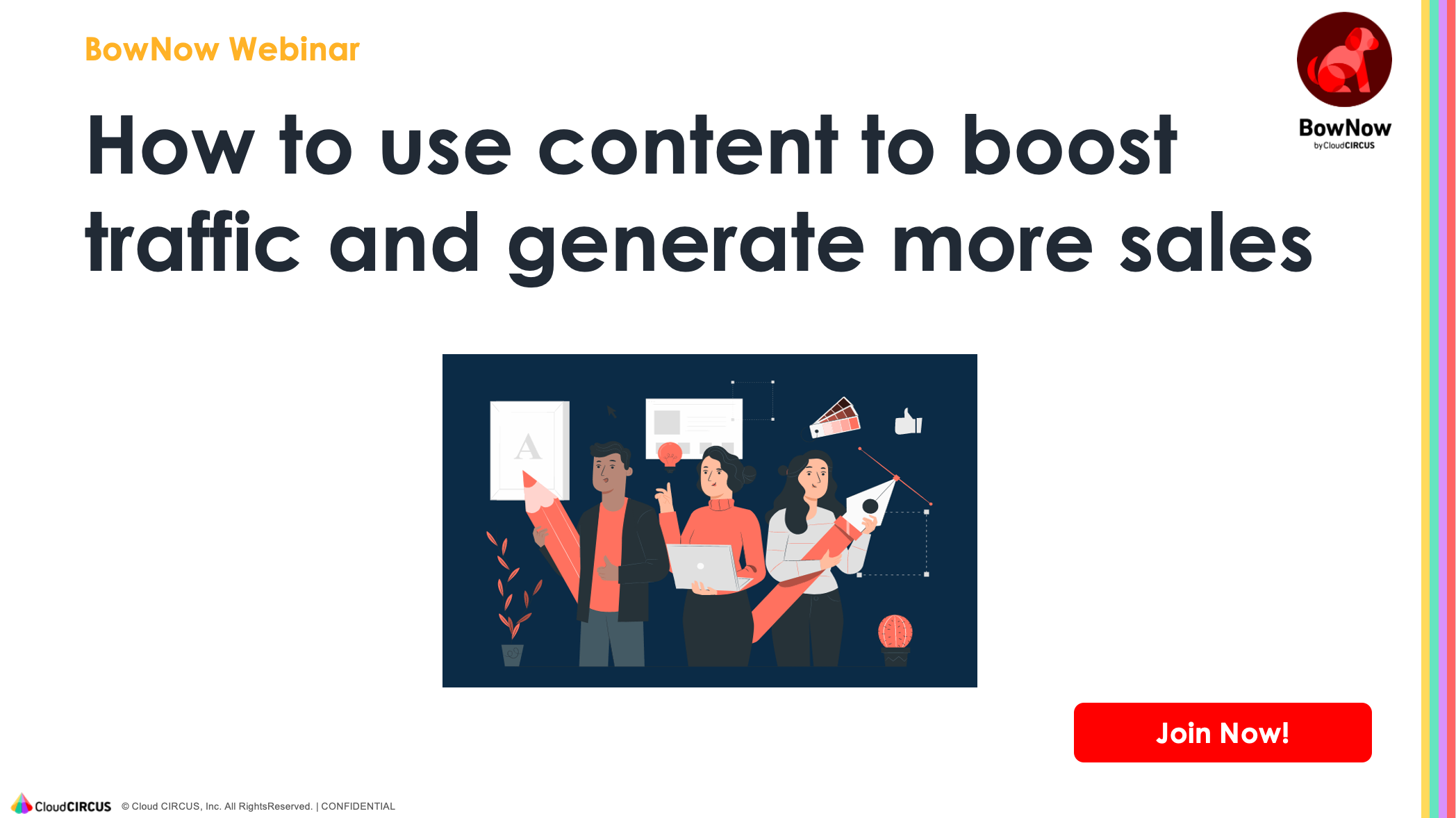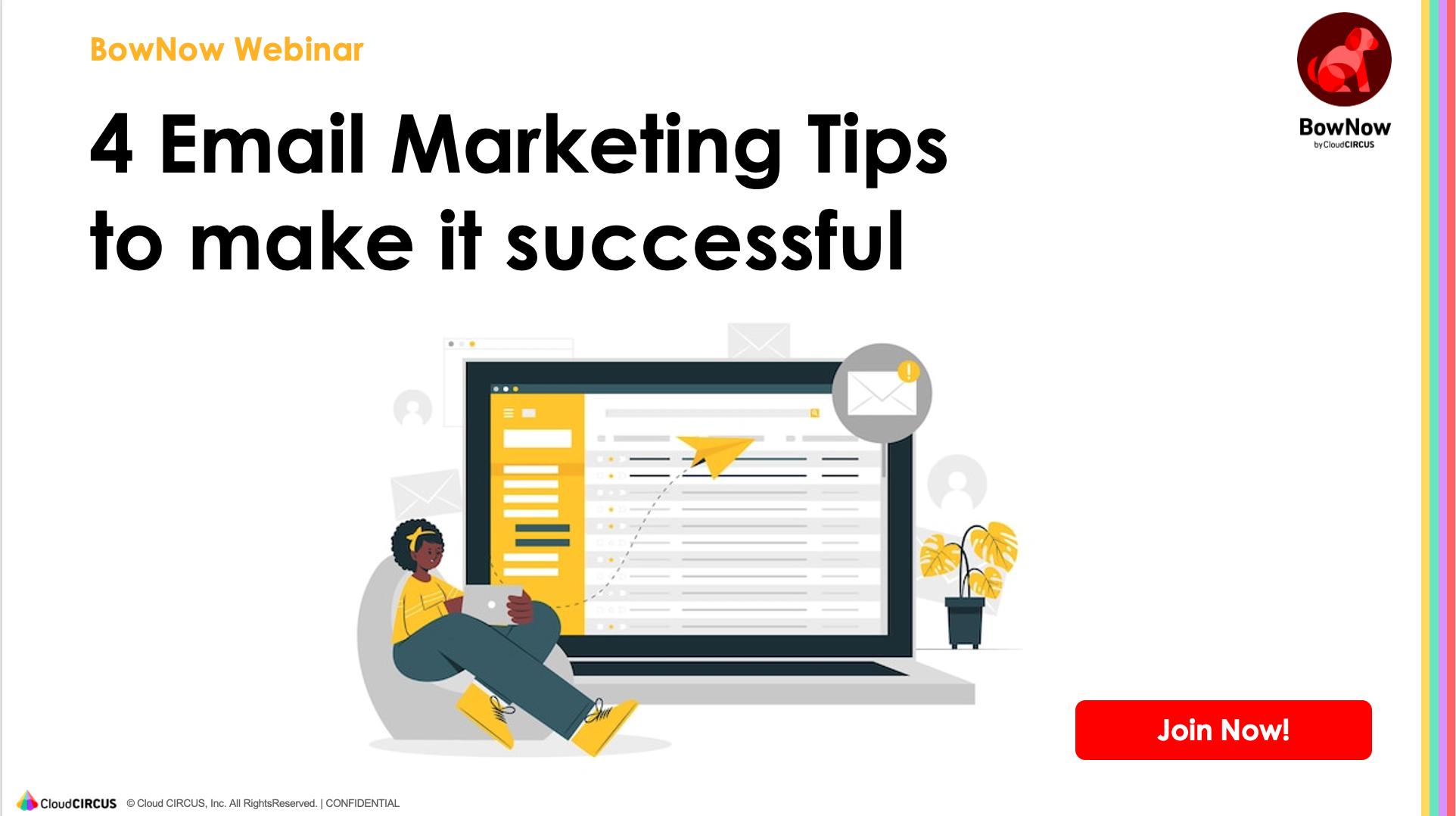Are Google Ads Worth It? (Google Ads vs. Facebook Ads)
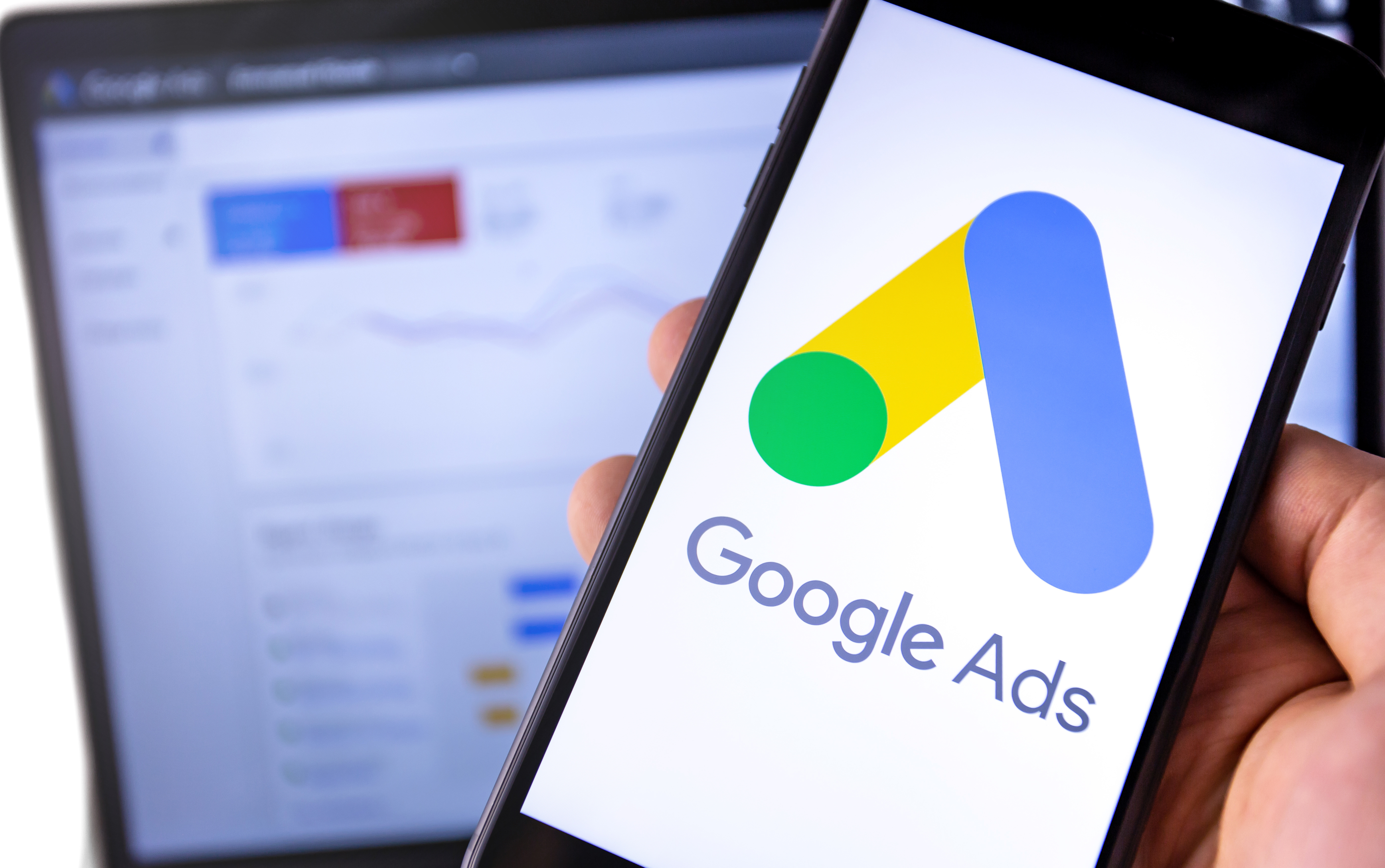
Google ads are one of the most popular paid ads, but why should I consider using them over other non-paid advertising methods such as content marketing (blogging)? Are Google ads better than Facebook ads? I hope you can get some ideas of what google ads and others'?
What are Google Ads?
Google ads are paid advertising that comes up on the top of google search results. You see a tag that says Ads in the titles.
The first thing you need to know about Google is that people use Google when looking for a solution for problems they have.

For example, you are looking for the best hair salon for balayage in Tokyo. There are so many hair salons in Tokyo, and it isn't easy to choose one out of them. Let’s say you put “ best hair salon Tokyo Balayage.” Google searches all the hair salons' websites in Tokyo doing balayage based on the keywords you put and lists the websites according to how they match the hair salon offers and your needs.
There are two types of search engine result page (SERP);
Paid Google ads
Paid Google ads show up on the top of the research page. Google analyzes the keyword the sponsor used to describe their products and service, head & subtitles, and the contents' quality. Google lists the paid ads if they seem a possible solution for what users need.
Organic search (non-paid)
The organic results are non-paid websites google put under the ads pages. Google lists them depending on the quality of the contents.
“the quality of the contents,”=” good relevant content.”
- image
- History of the hair salon
- menu of service
SEO: the primary goal is to help people find what they are looking for.
Google ads vs Facebook ads
What features of Google ads stand out compared to other famous paid ads like Facebook?
Honestly, both of the ads are good, and we can’t just conclude which one performs better than the other. There are primary differences in what needs to be done by each platform.
Google: People use it when they have specific problems to be solved.
Pros
- Fast traffic
Listing your web URL on the top of the research result page is standing out and will increase new visits! Creating detailed or even eye-catching titles help users know what your business is doing and determine if they click on your link. Also, Google ads can boost your brand awareness.
- Full control over the ads
What you can choose with Google ads; regions, hours, device users use, and budget. People who're searching for cafes near Tokyo station are most likely to be in Tokyo or planning to visit Tokyo in the near future. So, showing ads on the search results of people who are in Shinjuku is a better approach than showing on the page in Osaka.
- Targeting
With full control of your ads, you can approach the right customers at the right time. As I said, Google is used when people need specific information. Targeting customers is the first step to make your Google ads successful!
For example, making titles like “best balayage hair salon in Tokyo” or even a more narrowed title like “best balayage hair salon in Tokyo foreigner-friendly” will get more access from the targeted customers who are actually making a reservation online than a super broad title “ hair salon in Tokyo.”
- Good Tracking
You can see what your customer is doing after they clicked on your ads with conversion tracking (it’s free and made by Google). It measures if customers made a purchase, signed up for your newsletter, downloaded your app, and made a call.
Conversion: Any valuable actions someone takes after he/she interacts with your ads.
Conversion tracking in Google Ads
- Ads are testable for improvements.
You can make multiple types of ads for the same products/services. See the results and learn which type works best for your business.
More detailed instruction on how to test your ads is below.
Testing and Experimenting in Google Ads
Cons
- Cost per click
Google ads charge you per click. The average cost-per-click (CPC) is $1 to $2, and small to middle-sized companies spend about $9,000 to $10,000 a month. The more popular the industries are, the higher the CPC rate is charged.
- Need to keep posting
You need to keep paying for the ad's costs, unlike other unpaid methods like blogging. In the long run, the company will spend a lot of money.
- People will notice ads.
Your paid Google ad is posted with a light green tag of “Ads”, which might prevent users who don’t like to see ads from clicking.
- Struggling with keywords
SEO is analyzing if your advertising is right for the topic. Some misleading words are content and might lead to poorly rated websites. For example, your hair salon’s name is Apple, but SEO recognizes your website is irrelevant to (apple), it might think your website content is not right to list on the search result for people who searched “apple(fruit)”.
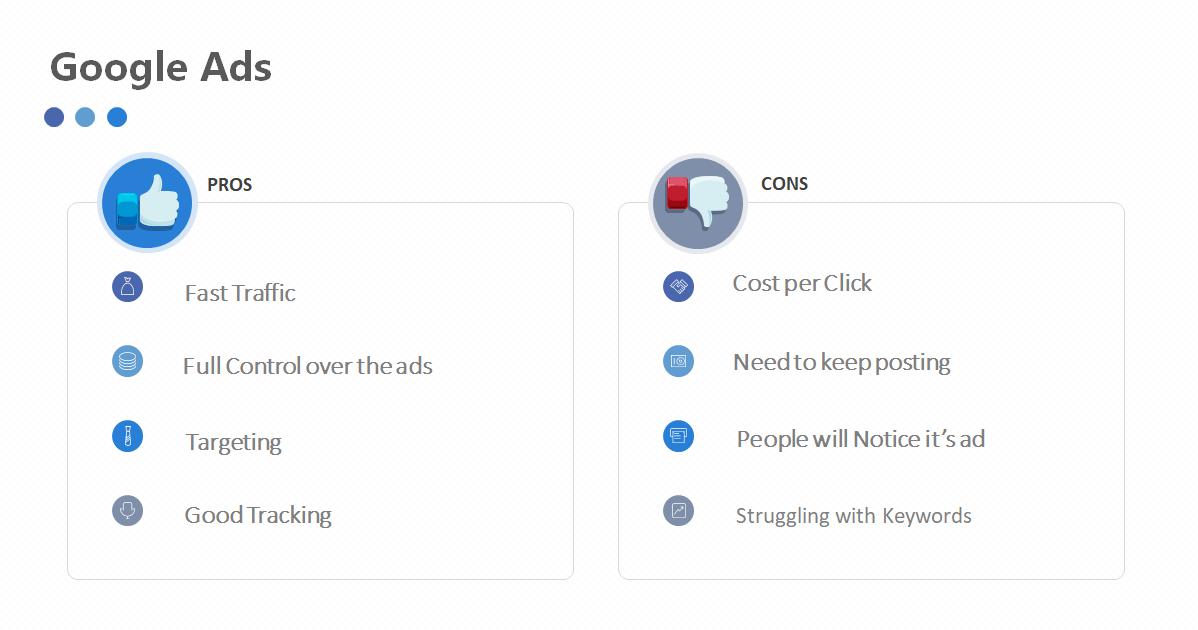
Facebook: People use it to have a connection with friends.
Pros
- A broad audience
While people use Google to find their answers, others use Facebook to connect with others. Direct approaching a narrowly targeted audience wouldn’t work for Facebook users.
- Community
Facebook is good for getting into a community and educating them first to have a long-term relationship. For example, your company invented a new innovative hair treatment. You can first share the hair treatment and blog to educate users about the products.
Recommended Youtube Tutorials & Books
What is Google Ads? How Google AdWords Works in 5 Minutes
Facebook Ads vs. Google Ads: Which Paid Advertising Should You Use For Online Marketing
7 Google Ads Hacks That’ll Make Your Campaigns Scale Profitably
Google Ads Tutorial | How To Get First Ad Position In Google Search With The Lowest CPC
Organic VS Paid Marketing Search Strategies The Pros and Cons | Neil Patel
Google Ads (AdWords) Workbook: Advertising on Google Ads, YouTube, & the
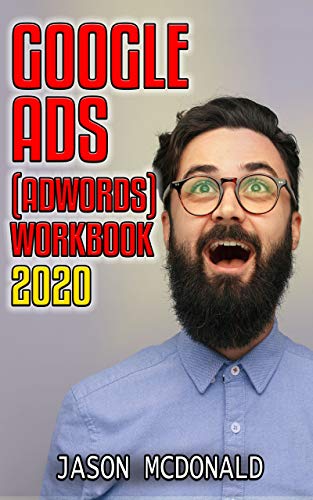
Display Network (2020 Edition)
Ultimate Guide to Google AdWords: How to Access 100 Million People in 10 Minutes
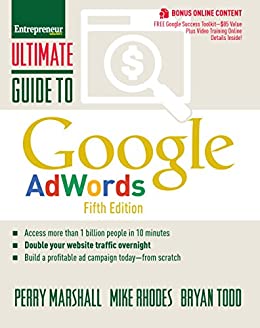
Customers in 10 Minutes (Ultimate Series) Second Edition
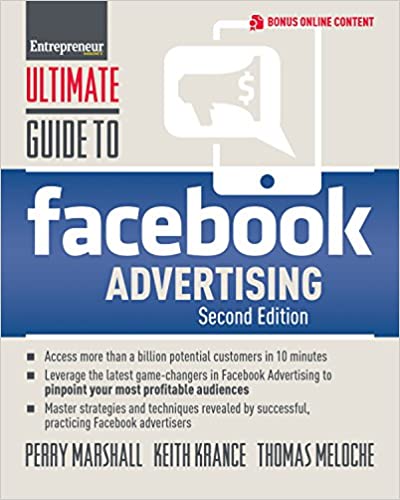
Killer Facebook Ads: Master Cutting-Edge Facebook Advertising Techniques
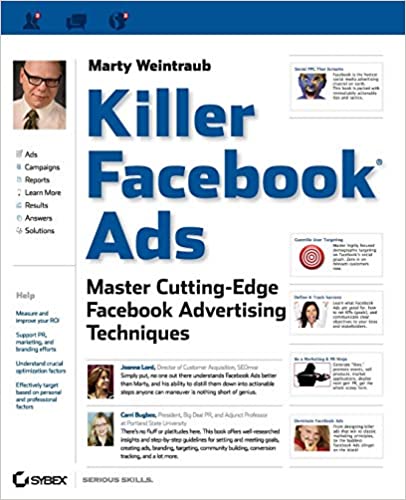
Summary
Google and Facebook ads should be used depending on your audiences and what your advertising goal is.
- Google Ads: specific audience, brand awareness, fast traffic.
- Facebook: broad audience, educate audiences about your products/service.

.jpg)
.jpg)
.jpg)
